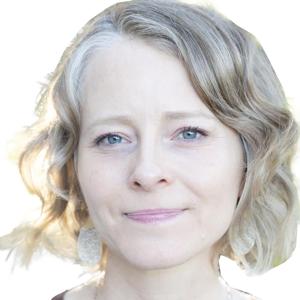Politics
California Pioneers Survey to Elevate Crime Survivors’ Voices

In a significant shift for crime victims’ advocacy, California is launching a groundbreaking survey aimed at understanding the needs of crime survivors. For the first time, researchers at the University of San Francisco are actively engaging with victims and their families to gather insights that have often been overlooked in the legislative process. The survey, which will remain open until November 30, 2023, seeks to directly address the motivations and experiences of those who have faced the aftermath of crime.
This initiative has profound implications for future policy-making, particularly against a backdrop of past legislative actions that have often co-opted survivor narratives for political gain. Jess Nichol, a sister of the late Polly Klaas, has publicly shared her experience with how her sister’s tragic kidnapping and murder in 1993 shaped public perceptions of crime. The California Three Strikes law, which was implemented in the wake of her sister’s death, illustrates how lawmakers have historically assumed they knew what victims wanted without actually consulting them.
Nichol emphasizes the disconnect between political agendas and the real needs of survivors. For decades, survivors like her have been used as symbols in political rhetoric, while their voices and needs have gone unheard. The survey aims to change this narrative by asking survivors what support they required and how the justice system could better serve them.
The questions posed in the survey are designed to reflect genuine survivor concerns, focusing on the types of support they received or lacked, their treatment by the legal system, and the resources that could have made a difference during their healing process. This approach marks a notable departure from traditional practices where lawmakers have often prioritized punitive measures over rehabilitation and community support.
Nichol notes that the survey was co-designed with input from victims and survivors, ensuring that it captures their perspectives accurately. By positioning survivors as co-creators of this initiative, the survey empowers them to influence future reforms that could lead to more effective support systems.
The findings from this survey will be shared with policymakers, community leaders, and advocates, reinforcing the importance of survivor voices in shaping laws and policies. Nichol recalls that when her sister was murdered, the support services that would have helped her family were virtually nonexistent. Instead, they faced media scrutiny and political maneuvering that failed to address their real emotional and psychological needs.
The ongoing conversation around crime and safety is particularly critical today, as many victims advocate for restorative justice and community-based solutions rather than longer prison sentences. Research consistently shows that victims prefer rehabilitation over retribution, highlighting the need for a system that fosters healing rather than perpetuates harm.
This survey represents a vital opportunity for systemic change. By listening to the lived experiences of survivors, lawmakers can create policies that prioritize healing and safety. Nichol underscores the importance of building a legal framework grounded in truth and empathy, rather than fear and political expediency.
As California embarks on this new path of understanding crime survivors, there is hope that this initiative will not only address the needs of victims but also reshape the broader narrative around crime and justice. The emphasis on survivor-led initiatives could pave the way for a more compassionate and effective approach to crime prevention and victim support, ultimately fostering a safer and more just society for all.
-

 Science3 weeks ago
Science3 weeks agoOhio State Study Uncovers Brain Connectivity and Function Links
-

 Politics3 weeks ago
Politics3 weeks agoHamas Chief Stresses Disarmament Tied to Occupation’s End
-

 Entertainment3 weeks ago
Entertainment3 weeks agoMegan Thee Stallion Exposes Alleged Online Attack by Bots
-

 Science4 weeks ago
Science4 weeks agoResearchers Challenge 200-Year-Old Physics Principle with Atomic Engines
-

 World2 weeks ago
World2 weeks agoFDA Unveils Plan to Cut Drug Prices and Boost Biosimilars
-

 Entertainment3 weeks ago
Entertainment3 weeks agoPaloma Elsesser Shines at LA Event with Iconic Slicked-Back Bun
-

 Top Stories3 weeks ago
Top Stories3 weeks agoFederal Agents Detain Driver in Addison; Protests Erupt Immediately
-

 Business3 weeks ago
Business3 weeks agoMotley Fool Wealth Management Reduces Medtronic Holdings by 14.7%
-

 Entertainment2 weeks ago
Entertainment2 weeks agoBeloved Artist and Community Leader Gloria Rosencrants Passes Away
-

 Business3 weeks ago
Business3 weeks agoHome Depot Slashes Prices on Halloween Favorites Up to 75%
-

 Top Stories3 weeks ago
Top Stories3 weeks agoOrioles Hire Craig Albernaz as New Manager Amid Rebuild
-

 Politics4 weeks ago
Politics4 weeks agoNHP Foundation Secures Land for 158 Affordable Apartments in Denver









